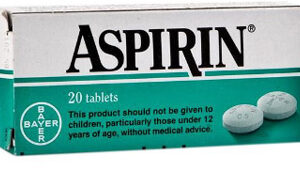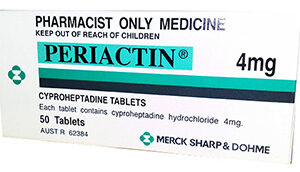Overview of Periactin
Periactin, whose generic name is cyproheptadine hydrochloride, is a medication primarily employed to alleviate symptoms associated with allergies, such as sneezing, runny nose, itching, and hives. Additionally, it finds utility in addressing other conditions, serving as an appetite stimulant and sometimes prescribed to manage vascular headaches.
Indications for Use
Periactin is indicated for the treatment of various allergic reactions, including perennial and seasonal allergic rhinitis, allergic conjunctivitis, and mild skin manifestations of urticaria and angioedema. It is beneficial for allergic reactions to blood or plasma, and in the management of anaphylactic reactions adjunctive to adrenaline and other standard measures after the acute manifestations have been controlled. It also aids in alleviating symptoms of common cold and other respiratory allergies. Additionally, it is used to stimulate appetite in individuals with inadequate food intake.
Dosage Instructions
Dosing of Periactin is distinctly tailored to the needs of the patient, considering their age, medical condition, and response to therapy. In typical scenarios, adults might initiate treatment with 4 mg three times daily. Dosages may be adjusted depending on efficacy and tolerability, but generally should not surpass 32 mg in a single day. Children’s dosage will differ based on age; thus, caregivers must strictly follow the prescription provided by a healthcare professional.
Directions for Administration
Periactin should be taken orally with or without food. For those troubled with stomach upset, taking Periactin with meals or a snack might prove beneficial. Engaging in a consistent routine for medication consumption aids in enhancing its effectiveness. If the medication is being used as an appetite stimulant, it may be more beneficial to take doses at least 30 minutes before meals. While taking Periactin fluid intake should be maintained adequately to evade potential dehydration.
Precautions and Warnings
Before commencing treatment with Periactin, discussion with a healthcare provider is crucial to ensure safety particularly if the patient has a history of glaucoma, enlarged prostate, bladder problems, hyperthyroidism, heart complications, hypertension, or seizures. Caution is advised when performing tasks requiring alertness, like driving or operating machinery, given Periactin’s potential to induce drowsiness. Pregnant and breastfeeding women should consult their healthcare provider before use as its effects on the fetus or nursing infant are not wholly understood. Those who consume alcohol should realize that its effects may be amplified by Periactin.
Possible Side Effects
The consumption of Periactin might instigate a variety of side effects, with the most prevalent ones being drowsiness, dizziness, blurred vision, dry mouth, constipation, or weight gain. If any of these effects persist or escalate, engaging with a healthcare professional promptly is important. Severe side effects are rare, but immediate medical aid is crucial upon symptoms such as mental/mood changes, shaking, difficulty urinating, or fast/irregular heartbeat.
Drug Interactions
Periactin may interact with numerous drugs, thereby potentially altering how medications perform and intensifying the risk for grave side effects. It is critical to keep a detailed list of all substances, including prescription/nonprescription drugs and herbal products, and share it with the healthcare provider. Special attention must be given to interactions with sedatives, sleeping pills, narcotic pain relievers, muscle relaxants, and medication for depression, anxiety, or seizures, as these may amplify drowsiness.
Contraindications
Periactin is contraindicated for patients with hypersensitivity to cyproheptadine or any other constituents of the formulation. It also must not be used in individuals with narrow-angle glaucoma, peptic ulcer, symptomatic prostatic hypertrophy, asthma attack, bladder neck obstruction, or in newborn or premature infants. This medication should also be avoided in patients in an acute asthmatic attack and those on MAOI therapy or within fourteen days of stopping such treatment.
Overdose and Emergency Measures
In the event of a suspected overdose, immediate medical intervention is essential. Indications of potential overdose comprise extreme drowsiness, confusion, hallucinations, very dry mouth, dilated pupils, pale or reddish skin, vomiting, or fainting. Emergency medical help should be sought without delay, and, if possible, the medication label should be presented to the healthcare professionals for quick reference.
Storage and Handling
To preserve the integrity of Periactin, storage in a tightly closed container away from light and moisture is essential. Place it at room temperature and ensure it is not exposed to high temperatures or moisture. Potentially hazardous in the hands of children or pets, it is imperative to store this medication out of their reach. Any unused or expired medicine must be disposed of in a proper manner, avoiding flushing down the toilet or pouring into a drain unless instructed to do so.
Frequently Asked Questions (FAQs)
Can Periactin be used for a long time?
Periactin may be safe for extended use under medical supervision; however, regular assessment by a healthcare provider is advised to monitor for side effects or the need for dosage adjustments.
Will I gain weight on Periactin?
Yes, weight gain is a possible side effect due to increased appetite and food intake when taking Periactin.
Does Periactin cause drowsiness?
Yes, drowsiness is a common side effect. Individuals should not drive or operate machinery until they know how Periactin affects them.
Can Periactin be taken with other medications?
Periactin might interact with other medications, so it’s crucial to consult a healthcare provider before combining with other substances.
What should I do if I miss a dose?
If a dose of Periactin is missed, take it as soon as remembered. However, if it’s near the time for the next dose, the missed dose should be skipped to return to the regular dosing schedule. Double doses should be avoided.
How should Periactin be taken?
Take Periactin exactly as prescribed by a healthcare professional, with or without food, and maintaining consistent dosing times to optimize effectiveness.
Can children take Periactin?
Yes, but the dosage for children will differ based on age and weight. Doses must be determined and supervised by a healthcare provider.
While this medication guide offers a comprehensive overview of Periactin, it doesn’t cover all possible scenarios. Users are urged to consult their healthcare professionals for personalized advice and information.






Phoenix (verified owner) –
Medicines arrived quickly and discreetly packaged. Great service!